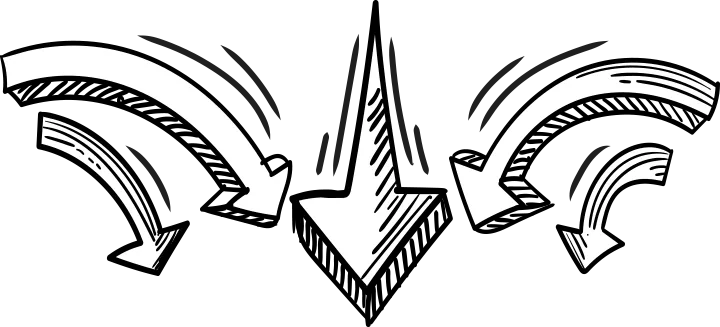Imagine a world, in which you can browse an item online, try it on in the store, scour the web for the best possible offer, receive an email reminding you to purchase the item, see the exact same item in your facebook feed, then purchase the item from your phone. This is the world of omni-channel marketing, and it’s here!
We have all likely been through the same purchase path, or something really similar. The days of attributing the sale to just one marketing channel are over. Many merchants are still living in the past, but some have recognized this behavior and are taking advantage.
What does omni-channel mean? (also spelled omnichannel)
Omni-channel is a multichannel approach to sales that seeks to provide the customer with a seamless shopping experience whether the customer is shopping online from a desktop or mobile device, by telephone or in a brick and mortar location.
They key in this definition is “seamless shopping experience”. If you are not utilizing technology to create this seamless shopping experience, your competitors likely are. It’s a race to seamlessly integrate shopping across all possible paths to purchase. If you have deals available online, but aren’t accepted in-store… you’re missing out. Consumers are not only trained to look for the deals online, but are getting a seamless shopping experience across devices from SOME merchants, and if it’s not you, you have some work to do playing catch up.
As we are affiliate marketers at heart, how does this affect affiliate programs?
Most affiliate programs are operating on a “last click” model, where the affiliate that drives the last click through before conversion gets the credit. This means that during the purchase path where someone clicks through a blog or review article for a product, then at some point later, clicks back through their favorite coupon or loyalty affiliate at the very last minute before purchasing, the last click gets 100% of the commission. This is a large reason why some merchants dislike coupon affiliates. They would say that there is no value being added by this last minute click, and that they would have already received that sale. We know this is not true, but does that affiliate really deserve 100% of the commission?
Let’s take a look at this further. First off, the blog that introduced the brand should get SOME credit. Second, while the coupon affiliate should get credit for converting the sale, they shouldn’t get 100% of the commission. AvantLink is one of our favorite network partners, due in part, because of their disruptive technology. They have rolled out Avant Metrics, which will allow you to attribute the sale across multiple affiliate touches. If you want to give the blogger 60% and the converting click 20% with another 20% split up amongst intermediate affiliate traffic, you can do just that.
Whatever the solution, in my opinion, we need a better model to use for affiliate marketing. Last click may have made sense 20 years ago, but it’s time for a more modern, omni-channel method.
Some merchants that we manage have gone with first click across all of their marketing channels, combined with a short cookie day window. For example, the first click through comes from email. Then email has a few days to convert, otherwise the attribution resets. Then, say another click comes from the same user (yes, they can tell, which is awesome!) but from an affiliate channel – and converts. Then, the affiliate channel gets the credit.
The only issue with this method is that all affiliate traffic is running through the client’s backend systems, then is reported to the network. While the attribution method makes sense, they are not utilizing the “neutral third party” which the affiliate network represents. This third party has made affiliate marketing what it is today, by providing both merchant AND affiliate with the peace of mind that everything is tracking and paid as agreed.
I think the client above is on the right track. If you are an affiliate network and are reading this blog, I hope you are working on a solution for this. Most potential (and current) clients that we speak with believe that attribution across channels, and avoiding channel cannibalization, is their top priority.
We need a system that will allow partial credit to be applied across marketing channels and across affiliates (that are sending traffic) to ensure that merchants aren’t paying multiple entities / channels for the same sale. This will allow merchants to feel much more comfortable working with affiliates in the future, and while it may mean that our affiliate partners don’t get 100% payout on a sale that they helped convert, it will mean that they will get more partial credit for sales that they weren’t the last click on.
In the future, marketing should look more like this:
Blogger-> social post -> email -> coupon affiliate = 100% of the commission / spend
Instead of:
Blog -> coupon affiliate = 100% (only for the coupon affiliate) AND
Email = 100% AND
Social = 100%
The bottom line for merchants, is that they need to put as much effort / technology as possible towards creating a seamless flow through all marketing channels to create an omni-channel purchase path for consumers – because your competitors already are. This will at least allow you to compete with other brands already doing this, then we can all figure out a way to make sure we aren’t doubling or tripling the spend across all participating channels.
As always, I would love to hear your feedback. What are you doing to compete on an omni-channel basis?


